CONSULTANT VACANCY ANNOUNCEMENT
Issued on: 9 February 2016
| ORGANIZATIONAL LOCATION: |
UN-Habitat |
|
DUTY STATION: |
Nampula – Mozambique |
|
FUNCTIONAL TITLE: |
Urban Planner |
|
DURATION: |
7 months, 120 days |
|
CLOSING DATE: |
22/02/2016 |
BACKGROUND
Mozambique is a low dense, agriculture based country that is exposed to impacts from recurrent climatic-related hazards. Although most people still live in rural areas, the pull towards cities to find better job opportunities and better facilities is high. This leads to unprecedented urban growth with the progressive accumulation of risk in cities and towns and unexploited economic potential, largely due to weak urban governance capacity to manage rapid expansion. Much of the population expansion has been taking place outside, or in the absence of, official planning frameworks. As a result, large numbers of people satisfy their housing needs in informal settlements, often located in high risk areas exposed to a range of natural and man-made hazards and without the access to facilities and jobs due to long distances and poor quality of public transport.
In this context, the United Nations Human Settlement Programme (UN-Habitat) provides technical access, guidance and on-site assistance to know-how for supporting sustainable urbanisation practices with a focus on promoting sustainable urban planning, resilience building to city governments, NGOs, UN, local and national authorities and communities in Mozambique. UN-Habitat supports the government at all levels to unlock the economic potential of cities and regions by working in a participatory way to improve design, develop strategies to enhance municipal finance and to develop the legal framework that is needed to implement, for example through increased access to land and improved land tenure security.
UN-Habitat is pioneering initiatives that promote a participatory approach with local stakeholders in developing strategies for development and determining priority investments needs in order to develop sustainable urban strategies in Mozambique. The Cities Alliance (CA) funded project: ‘Enhancing the Planning Capacities of Cities in the Nacala Corridor (Nampula, Nacala and Tete)’ aims at providing an effective and rapid response to pressing needs in the Nacala Corridor. Firstly by strengthening the capacity if the Nampula based planning support unit (PSU) and building credibility as an autonomous institution that provides fit-for-purpose services to cities along the Nacala corridor in the field of urban planning. Secondly, by maximizing the ability of the city authorities of Nampula, Nacala and Tete to plan and sustainably manage urban growth through durable access to technical advice, public-private platforms and on-the-job capacity-building.
For this project a series of workshops has been developed that aim to develop basic sustainable urban development strategies and determine immediate investments and actions for implementation for Nampula, Nacala and Tete. UN-Habitat from the PSU, Maputo office and UN-Habitat Headquarter in Nairobi will be involved throughout the project.
Considering the above-described projects and activities, an international Urban-Planner, that can support the cities with their development strategies and action prioritisation and that is also an experienced trainer and excellent team player, is needed to support UN-Habitat’s activities in the Nacala corridor and to strengthen the capacity in the PSU.
RESPONSIBILITIES
Under the supervision of the Head of Programme of UN-Habitat Mozambique and in day-to-day coordination with the Head of the Planning Support Office, the consultant will support the development of sustainable urban development strategies in de Nacala corridor and strengthen the overall knowledge in the field of urban development of key stakeholders in the Nacala corridor.
In close collaboration with the PSU and team in Maputo, the consultant will:
- Support the preparation of workshops: prepare and facilitate during the workshops and elaborate together with local staff the results. This includes the development of material (brochure/booklet) with the outcome of the workshop for each city. Since each city will appoint a focal point, the consultant will work closely as well them to secure input and request data if needed;
- Support the identification of capacity development needs in the Nacala corridor and map the existing professional network of public and private sector and academics. This serves as input for future development needs and preparation of capacity development workshops;
- Support the training and understanding of local leadership in the Nacala corridor and prepare mayors/administradores to formulate the narrative for their cities and make the development needs (both concrete investments as well human resources) more explicit;
- Support the preparation of a fundraising event where the leadership of the three cities and potential donors meet.
COMPETENCIES
Professionalism: Knowledge and understanding of practical disaster risk reduction architecture and adaptation. Ability to identify issues, analyse and participate in the resolution of issues/problems. Knowledge or understanding of countries in transition (especially Mozambique) and adaptation related challenges and priorities. Ability to conduct data collection and technical assessment using various methods, including field missions and interviews. Conceptual analytical and evaluative skills to conduct independent research and analysis. Ability to apply judgment in the context of assignments given, plan own work and manage conflicting priorities. Shows pride in work and in achievements; is conscientious and efficient in meeting commitments, observing deadlines and achieving results; is motivated by professional rather than personal concerns; shows persistence when faced with difficult problems or challenges; remains calm in stressful situations.
Teamwork: Works collaboratively with colleagues to achieve organizational goals; solicits input by genuinely valuing others’ ideas and expertise; is willing to learn from others; places team agenda before personal agenda; supports and acts in accordance with final group decision, even when such decisions may not entirely reflect own position; shares credit for team accomplishments and accepts joint responsibility for team shortcomings.
Planning and Organizing: Develops clear goals that are consistent with agreed strategies; identifies priority activities and assignments; adjusts priorities as required; allocates appropriate amount of time and resources for completing work; foresees risks and allows for contingencies when planning; monitors and adjusts plans and actions as necessary; uses time efficiently.
Judgment/ Decision-making: Identifies the key issues in a complex situation, and comes to the heart of the problem quickly; gathers relevant information before making a decision; considers positive and negative impacts of decisions prior to making them; takes decisions with an eye to the impact on others and on the Organization; proposes a course of action or makes a recommendation based on all available information; checks assumptions against facts; determines the actions proposed will satisfy the expressed and underlying needs for the decision; makes tough decisions when necessary.
EDUCATION
Advanced University Degree, (Master’s degree or equivalent) in Urban Planning, Urban Development or related field of study, with a focus on strategy development. A first university degree with a combination of at least six years professional experience in the field of Adaptive Architecture and academic qualifications may be accepted in lieu of the advanced degree.
WORK EXPERIENCE
- At least 5 years of working experience in urban development, preferably in Mozambique
- In-depth knowledge of the context of Mozambique;
- Working experience in capacity building with both professionals as well as newcomers in the field
- Working technical expertise and experience using GIS application at a medium/advanced level, 3D Modelling programs, CADs and ArcGIS;
- Experience in working with high level Institution representatives, Ministries, academia and national or local authorities.
- Willingness to extensive field travel. Exposure to and working experience in small towns and rural areas, including public consultation and community involvement and capacity to deal with local community representatives and local builders
- Experience in planning and urban development in a regional context
LANGUAGE SKILLS
Fluency in Portuguese is a must and working knowledge of English is required.
OTHER SKILLS
- Ability to quickly identify training needs and tailor make training units for various types of audiences;
- Good communication and negotiations skills with government authorities and local communities at the provincial and district levels;
- Graphical and editorial computer skills (with good skills in Illustrator and Indesign)
- Ability to work productively in a multicultural environment and willingness to work in difficult conditions;
The consultant will be based in Nampula. Frequent travel to Tete and Nacala is required.
REMUNERATION
The total fee (120 days) will have to be determined. There are set remuneration rates for consultancies. The rate is determined by functions performed and experience of the consultant. The fees will be paid as per agreement.
|
Applications should include: Please also be advised that since April 15th 2010, applicants for consultancies must be part of the All applications should be submitted to: UN-HABITAT does not charge a fee at any stage of the recruitment process. If you have any questions concerning persons or companies claiming to be recruiting on behalf of these offices and requesting the payment of a fee, please contact: recruitment@unon.org |
Source: unhabitat.org

Neueste Beiträge
- Experts internationaux et nationaux,(Conakry, Guinée et à domicile), DATE DE CLOTURE: 30 juin 2019
- Call for Expressions of Interest to Host the Global Water Operators’ Partnerships Alliance Secretariat
- EoI – URBAN PATHWAYS – Supporting Low Carbon Plans for Urban Basic Services in the context of the New Urban Agenda
- Sierra Leone hosts stakeholders meeting on New Urban Agenda and WUF 10
- Declaration of the First Global Stakeholder Forum of the First UN Habitat Assembly
Archive
- Juni 2019
- Mai 2019
- April 2019
- März 2019
- Februar 2019
- Januar 2019
- Dezember 2018
- November 2018
- Oktober 2018
- September 2018
- August 2018
- Juli 2018
- Juni 2018
- Mai 2018
- April 2018
- März 2018
- Februar 2018
- Januar 2018
- Dezember 2017
- November 2017
- Oktober 2017
- September 2017
- August 2017
- Juli 2017
- Juni 2017
- Mai 2017
- April 2017
- März 2017
- Februar 2017
- Januar 2017
- Dezember 2016
- November 2016
- Oktober 2016
- September 2016
- August 2016
- Juli 2016
- Juni 2016
- Mai 2016
- April 2016
- März 2016
- Februar 2016
- Januar 2016
- Dezember 2015
- September 2015
- April 2014
- Dezember 2012
- März 2012
